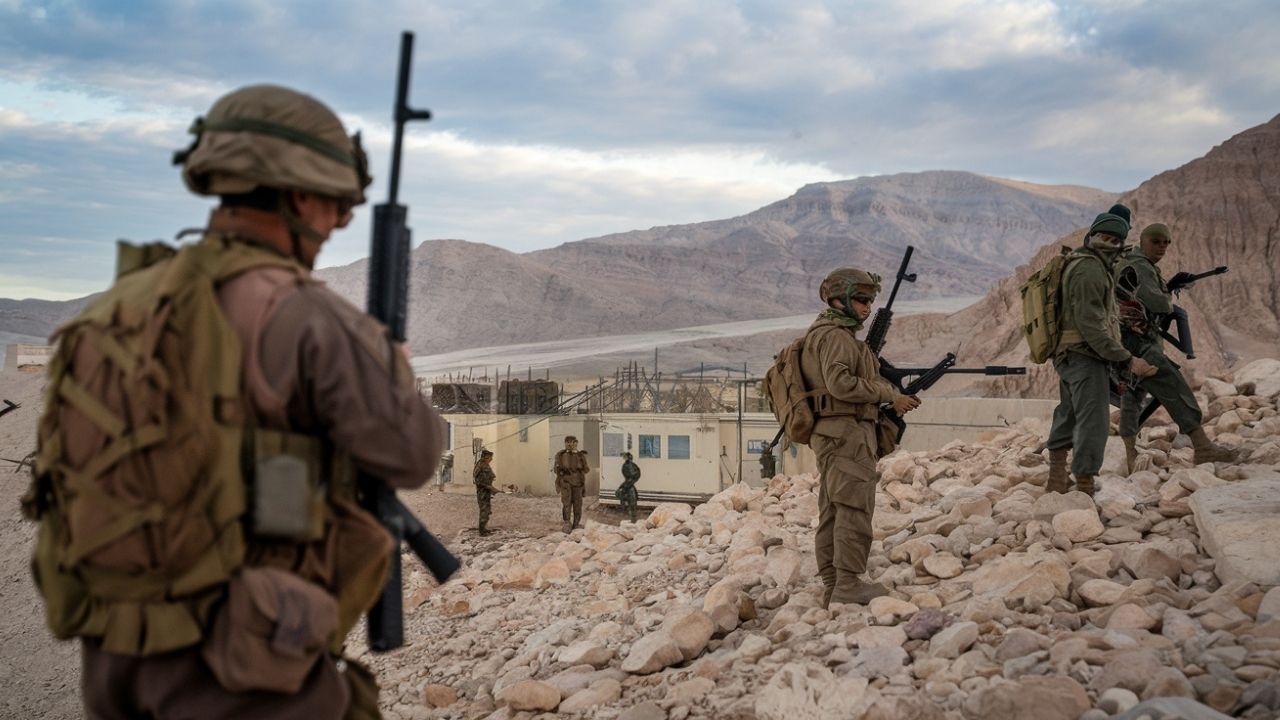
What was the Jebel Akhdar War? The Jebel Akhdar War, also known as the Green Mountain War, took place in Oman between 1954 and 1959. This conflict saw the Sultanate of Muscat and Oman, backed by British forces, clashing with the Imamate of Oman. The war centered around control of the Jebel Akhdar region, a mountainous area rich in resources and strategic importance. The Imamate sought independence and self-governance, while the Sultan aimed to consolidate power over the entire country. Why is this war significant? It marked a turning point in Omani history, leading to modernization and stronger ties with Britain. Understanding this conflict helps grasp the complexities of Oman's political landscape and its journey towards unity.
Key Takeaways:
- The Jebel Akhdar War was a 1950s conflict in Oman between coastal and interior regions, with British involvement. It shaped Oman's political landscape and is a symbol of resistance and national identity.
- The war highlighted the strategic importance of the Jebel Akhdar region, fostering national unity and resilience in Omani culture. It continues to influence Oman's history and identity.
The Jebel Akhdar War: An Overview
The Jebel Akhdar War, also known as the Green Mountain War, was a significant conflict in Oman during the mid-20th century. This war saw the Sultanate of Muscat and Oman clashing with the Imamate of Oman. Here are some intriguing facts about this historical event.
- The Jebel Akhdar War took place between 1954 and 1959.
- It was primarily fought in the mountainous region of Jebel Akhdar, which means "Green Mountain" in Arabic.
- The conflict was rooted in the long-standing rivalry between the coastal Sultanate and the interior Imamate.
- The war was part of a broader struggle for control over Oman’s interior regions.
- The British played a crucial role in supporting the Sultanate of Muscat and Oman during the conflict.
Key Players in the War
Understanding the main figures involved in the Jebel Akhdar War provides insight into the motivations and strategies employed during the conflict.
- Sultan Said bin Taimur was the ruler of Muscat and Oman during the war.
- Imam Ghalib Al Hinai led the Imamate forces against the Sultanate.
- British military advisors and troops supported the Sultanate's efforts.
- The Imamate forces were primarily composed of tribal fighters from the interior regions.
- Major General John Graham led the British military operations in support of the Sultanate.
The Course of the Conflict
The Jebel Akhdar War saw several key battles and strategic maneuvers that shaped its outcome.
- The war began with the Imamate forces capturing several key towns in the interior.
- The Sultanate initially struggled to regain control due to the difficult mountainous terrain.
- British air support played a significant role in turning the tide of the conflict.
- The Battle of Nizwa in 1955 was a crucial victory for the Sultanate.
- The final phase of the war saw a coordinated assault on the Imamate stronghold in Jebel Akhdar.
Impact on Oman
The Jebel Akhdar War had lasting effects on Oman’s political and social landscape.
- The war resulted in the consolidation of the Sultanate’s control over the entire country.
- It marked the end of the Imamate as a political entity in Oman.
- The conflict led to increased British influence in Omani affairs.
- The war prompted significant military and economic reforms in the Sultanate.
- The Jebel Akhdar region remained a symbol of resistance and independence for many Omanis.
Legacy of the Jebel Akhdar War
The legacy of the Jebel Akhdar War continues to influence Oman’s history and identity.
- The war is remembered as a pivotal moment in Omani history.
- It highlighted the strategic importance of the Jebel Akhdar region.
- The conflict underscored the challenges of governing a diverse and geographically complex country.
- The war fostered a sense of national unity and identity among Omanis.
- The Jebel Akhdar War is often studied in military history for its unique challenges and strategies.
Cultural and Historical Significance
The Jebel Akhdar War holds a special place in Omani culture and history, reflecting broader themes of resistance and resilience.
- The war has been the subject of numerous books and documentaries.
- It is commemorated in Omani literature and folklore.
- The conflict is seen as a testament to the resilience of the Omani people.
- The Jebel Akhdar region remains a popular destination for those interested in Omani history.
- The war’s legacy continues to shape Oman’s national narrative and identity.
Reflecting on the Jebel Akhdar War
The Jebel Akhdar War remains a significant chapter in Oman's history. This conflict, which took place from 1954 to 1959, saw the Sultanate of Oman battling the Imamate of Oman for control over the Jebel Akhdar region. The war highlighted the strategic importance of the Green Mountain and the resilience of its people. British military support played a crucial role in the Sultanate's victory, leading to the eventual unification of Oman under Sultan Said bin Taimur. The war's legacy continues to influence Oman's political landscape and its relationship with the United Kingdom. Understanding this conflict provides valuable insights into the region's history and the complexities of its past. The Jebel Akhdar War is a testament to the enduring spirit of the Omani people and their quest for unity and stability.
Frequently Asked Questions
Was this page helpful?
Our commitment to delivering trustworthy and engaging content is at the heart of what we do. Each fact on our site is contributed by real users like you, bringing a wealth of diverse insights and information. To ensure the highest standards of accuracy and reliability, our dedicated editors meticulously review each submission. This process guarantees that the facts we share are not only fascinating but also credible. Trust in our commitment to quality and authenticity as you explore and learn with us.
